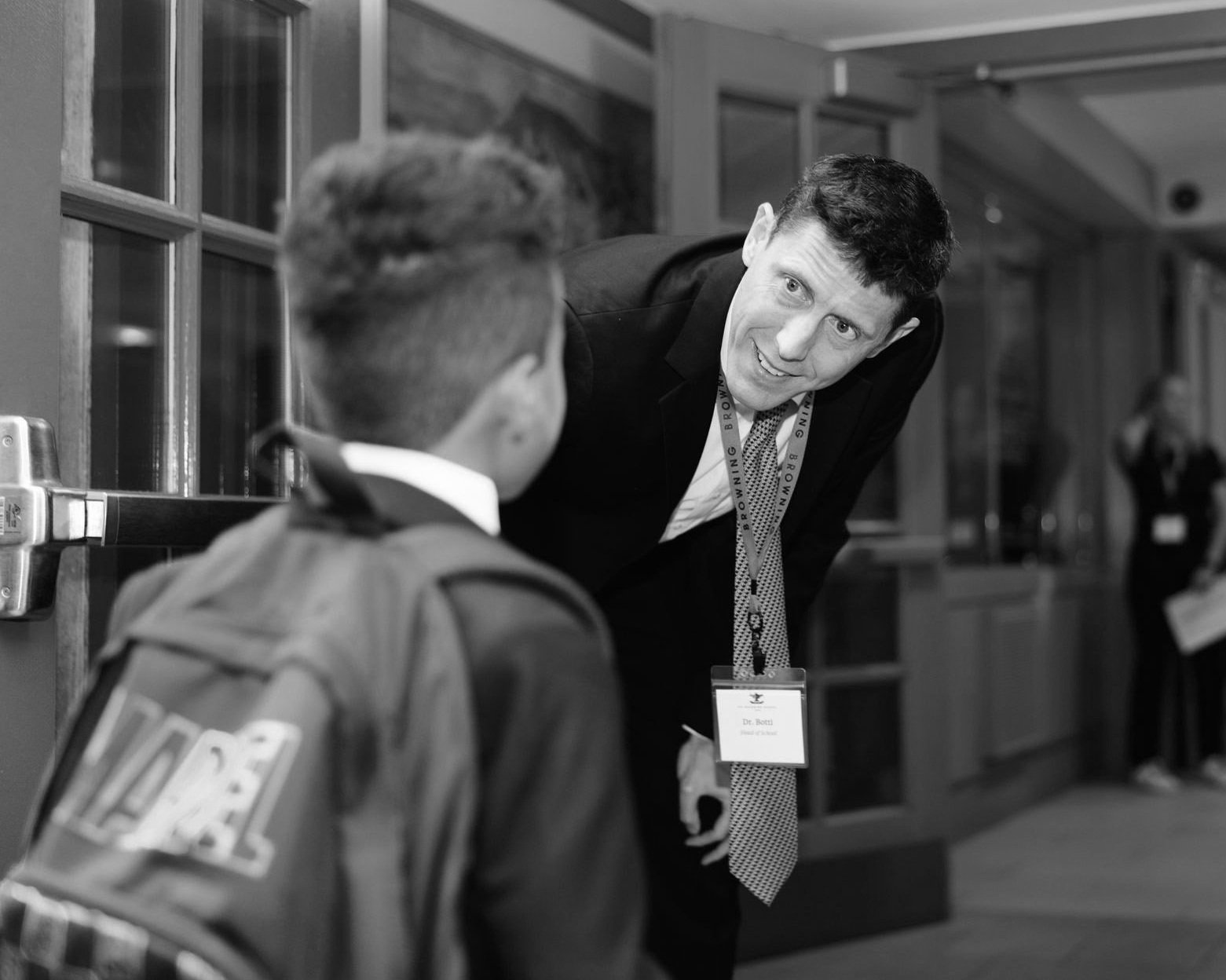Building Trust in our Institution
We’ve just come through our first full week together as a school, and it’s been an incredibly enjoyable beginning to our year. From the Senior Class Dinner on the eve of school’s first day to our opening assembly in Christ Church to the buoyancy of boys making their way through the halls, the inescapable sensibility has been one of joyful togetherness. This feeling probably has dozens of roots—the prerogative to be mask-free, the quality of our incoming students and new professional colleagues, the enthusiasm for gatherings and activities that had been pandemic-constrained, etc.—whatever its origin, it has marked our first blooming days together with energy and hope and decidedly good cheer.
If early Browning days have been ones of fellowship, however, they stand in tonal contrast to so much national discourse about education that gained prominence last year, and which intensified over the summer. As long as the United States has had school, curriculum has been contested terrain, with historical battles fought over matters like McGuffey Readers, the theory of natural selection, and the life adjustment movement, among others. In recent months, evergreen disputes about sex education and the humanities (particuarly history and literature) have escalated, and worries about social-emotional learning and early reading instruction have garnered attention. Given these headlines, one might assume schools are devolving into sites of endless contention among parents, teachers, administrators, and politicians.
“Excellent educational institutions do not encourage contests for control, but instead rely on a currency of trust. ”
Explanations for this contention may legitimately focus on deep-seated cultural polarization or the outrage economy of social media, but I also wonder about the lingering effects anxiety brought about by the pandemic. After 30 months of uncertainty, trauma, and frustration, I suspect that there’s nothing more natural than a heightened sense of protectiveness, especially in and for the lives of children. This is not to dismiss or pathologize some of the curricular arguments being made; it is simply to note that the pandemic may have intensified a human desire to control a chaotic world.
Excellent educational institutions do not encourage contests for control, but instead rely on a currency of trust. A school like Browning—with a mission calling for courage and compassion, with values like honesty and dignity, with an emphasis on relational teaching—has a marked reliance on trust, if it is going to meet the needs of all the boys, families, and professionals involved. It’s vital to understand that while we often talk about trust as something we “give,” it’s far more a relationship than a mere transaction. For schools to have the trust of their constituents, these institutions must be consistently honest and clear about their intentions, remain open to hearing and acting upon feedback, diligently clarify misunderstandings, and demonstrate the kind of professional skill and personal decency that warrant the belief of the community.
At Browning, we know that there will sometimes be honest disagreement about curriculum—or athletic philosophy, or technology usage, or schedules, or many other things. In a school with so many diverse and informed opinions, there are bound to be differences in interpretation—but as an institution, this is precisely when we have not just an obligation, but an opportunity. This is exactly when we must pursue honest exchange, generous listening, and shared reasoning among all those who care for children, in the name of finding common cause—if not universal agreement, certainly mutual understanding, respect, and affirmation. Browning has a responsibility to pursue these goals, for they are the foundations of trust—trust not only in the good intentions of the institution, but also in the skill of that institution to vest its boys with the critical thought, reasoning, open-mindedness, and compassion to negotiate a pandemic, support a democracy, and meet whatever else the world is going to bring. While no school always gets it right, our opening week suggests that we are very much pointed in the right direction—and I can’t wait to see where we can go together this year.

